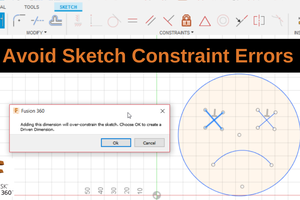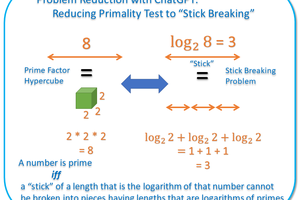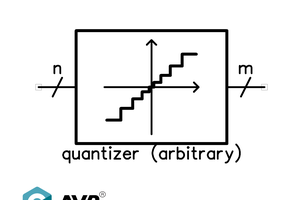Attempt @ BPP algorithim for an NP-hard problem
Exact Three Cover.
Exact Three Cover.
To make the experience fit your profile, pick a username and tell us what interests you.
We found and based on your interests.
x3c-algorithim-probablisticpolynomial.pypy - 9.21 kB - 07/29/2020 at 22:48 |
|
|
geniustwothreefor.pyx-python-script - 7.20 kB - 07/23/2020 at 02:51 |
|
import random
from itertools import permutations
import json
# |S| creation 52
s = []
for a in range(1, 52):
s.append(a)
# Contains only One Solution
c = [[4, 5, 39], [10, 11, 17], [4, 5, 44], [1, 2, 27], [1, 2, 41], [10, 11, 31], [4, 5, 51], [10, 11, 40], [1, 2, 37], [10, 11, 29], [7, 8, 24], [4, 5, 7], [4, 5, 35], [7, 8, 51], [1, 2, 44], [7, 8, 38], [7, 8, 40], [1, 2, 17], [7, 8, 9], [7, 8, 17], [4, 5, 11], [7, 8, 31], [1, 2, 3], [4, 5, 36], [10, 11, 23], [4, 5, 31], [10, 11, 51], [10, 11, 36], [1, 2, 48], [7, 8, 42], [16, 17, 18], [10, 11, 21], [1, 2, 7], [7, 8, 48], [10, 11, 42], [7, 8, 21], [7, 8, 10], [4, 5, 24], [34, 35, 36], [1, 2, 25], [1, 2, 46], [7, 8, 26], [1, 2, 50], [37, 38, 39], [1, 2, 21], [46, 47, 48], [4, 5, 13], [1, 2, 39], [1, 2, 19], [7, 8, 35], [4, 5, 8], [7, 8, 47], [1, 2, 22], [25, 26, 27], [7, 8, 22], [4, 5, 20], [4, 5, 9], [4, 5, 22], [10, 11, 46], [4, 5, 23], [7, 8, 41], [10, 11, 38], [1, 2, 31], [7, 8, 12], [1, 2, 49], [10, 11, 48], [10, 11, 45], [10, 11, 18], [4, 5, 16], [4, 5, 18], [28, 29, 30], [4, 5, 33], [1, 2, 20], [1, 2, 24], [7, 8, 32], [4, 5, 27], [7, 8, 36], [4, 5, 28], [4, 5, 29], [7, 8, 18], [1, 2, 42], [1, 2, 32], [1, 2, 9], [1, 2, 23], [1, 2, 14], [1, 2, 36], [4, 5, 32], [4, 5, 45], [7, 8, 20], [7, 8, 34], [4, 5, 37], [1, 2, 38], [31, 32, 33], [7, 8, 43], [4, 5, 21], [10, 11, 44], [1, 2, 6], [7, 8, 25], [4, 5, 50], [10, 11, 22], [7, 8, 50], [10, 11, 27], [7, 8, 28], [10, 11, 26], [1, 2, 47], [4, 5, 38], [4, 5, 30], [1, 2, 12], [10, 11, 50], [10, 11, 13], [10, 11, 19], [1, 2, 33], [4, 5, 19], [4, 5, 46], [7, 8, 46], [1, 2, 30], [7, 8, 27], [10, 11, 34], [10, 11, 39], [1, 2, 26], [4, 5, 17], [4, 5, 41], [4, 5, 10], [10, 11, 49], [10, 11, 32], [1, 2, 43], [19, 20, 21], [10, 11, 15], [7, 8, 15], [1, 2, 35], [1, 2, 8], [7, 8, 37], [7, 8, 44], [7, 8, 13], [22, 23, 24], [10, 11, 47], [10, 11, 24], [7, 8, 30], [10, 11, 12], [10, 11, 35], [7, 8, 49], [4, 5, 48], [1, 2, 4], [1, 2, 28], [10, 11, 28], [1, 2, 13], [1, 2, 16], [10, 11, 20], [7, 8, 14], [1, 2, 10], [40, 41, 42], [1, 2, 51], [1, 2, 34], [10, 11, 16], [7, 8, 11], [10, 11, 33], [7, 8, 23], [7, 8, 45], [43, 44, 45], [1, 2, 45], [1, 2, 18], [4, 5, 25], [4, 5, 47], [13, 14, 15], [4, 5, 14], [4, 5, 40], [4, 5, 34], [7, 8, 33], [1, 2, 15], [10, 11, 43], [4, 5, 49], [1, 2, 5], [10, 11, 37], [7, 8, 19], [49, 50, 51], [1, 2, 11], [4, 5, 43], [7, 8, 16], [4, 5, 6], [1, 2, 29], [4, 5, 26], [7, 8, 39], [4, 5, 12], [7, 8, 29], [1, 2, 40], [4, 5, 15], [4, 5, 42], [10, 11, 25], [10, 11, 14], [10, 11, 30], [10, 11, 41]]
#c =[[1,2,3],[1,2,4],[1,2,5],[1,2,6],[3,4,5],[3,4,6],[3,4,7],[4,5,6],[4,5,7],[6,3,7],[7,10,11],[22,1,11],[22,27,29],[30,1,14],[30,13,14],[14,20,11],[25,27,29],[1,2,45],[14,1,2],[14,2,3],[14,5,1],[26,4,13],[26,7,17],[27,29,18],[19,27,13],[3,4,13],[19,2,1],[19,20,9],[18,3,2],[29,26,1],[5,3,11],[13,16,19],[13,20,21],[13,1,9],[17,19,23],[1,3,5],[5,3,2],[6,8,1],[7,30,23],[11,19,7],[7,4,28],[7,4,28],[18,13,1],[7,12,15],[15,2,3],[29,1,2],[29,2,3],[29,2,4],[29,5,4],[29,23,22],[3,26,5],[3,26,4],[3,25,3],[10,11,2],[30,1,2],[30,3,4],[30,4,5],[30,8,9],[30,18,19],[30,20,13],[6,22,23],[6,24,15],[18,1,2],[18,2,3],[18,4,5],[18,16,1],[24,26,27],[10, 2, 7], [10, 13, 14], [10, 5, 9], [6, 3, 8], [10, 26, 27], [10, 19, 16], [10, 25, 23], [10, 12, 15], [10, 29, 30], [10, 20, 21],[27,28,30],[28,29,30],[10,2,1],[10,7,8],[10,13,14],[10,11,8],[15,1,2],[15,8,4],[13,14,15],[11,12,15],[22,1,2],[22,21,3],[22,25,23],[10,4,8],[17,2,3],[17,2,4],[17,20,21],[18,2,3],[18,2,4],[18,19,16],[15,4,9],[4,5,1],[4,5,10],[5,7,9],[4,5,9]]
# Solve Exact List Cover.
# Just unhashtag these to enter inputs manually.
#s = input("Input list of integers (no repeating elements) for S with commas (eg. 1,2,3,4...) : ").split(',')
#c = input('enter list for C (eg. [[1,2,3],[4,5,6]]): ')
#c = json.loads(c)
#s = [int(a) for a in s]
n = len(s)
while_loop_steps = n*241*((n*241)-1)*((n*241)-2)//6
if len(s) % 3 != 0:
print('invalid input')
...
Read more »
import random
from itertools import combinations
from itertools import permutations
import sympy
import json
import quantumrandom
print('Welcome to EX3C-Probablistic-Algorithim')
print('Enter your Exact Three Cover Instance')
s = input("Input list of integers (no repeating elements) for S with commas (eg. 1,2,3,4...) : ").split(',')
c = input('enter list for C (eg. [[1,2,3],[4,5,6]]): ')
c = json.loads(c)
#s = 1,2,3,4,5,6,7,8,9,10,11,12,13,14,15,16,17,18,19,20,21,22,23,24,25,26,27,28,29,30
#c =[[1,2,3],[1,2,4],[1,2,5],[1,2,6],[3,4,5],[3,4,6],[3,4,7],[4,5,6],[4,5,7],[6,3,7],[7,10,11],[22,1,11],[22,27,29],[30,1,14],[30,13,14],[14,20,11],[25,27,29],[1,2,45],[14,1,2],[14,2,3],[14,5,1],[26,4,13],[26,7,17],[27,29,18],[19,27,13],[3,4,13],[19,2,1],[19,20,9],[18,3,2],[29,26,1],[5,3,11],[13,16,19],[13,20,21],[13,1,9],[17,19,23],[1,3,5],[5,3,2],[6,8,1],[7,30,23],[11,19,7],[7,4,28],[7,4,28],[18,13,1],[7,12,15],[15,2,3],[29,1,2],[29,2,3],[29,2,4],[29,5,4],[29,23,22],[3,26,5],[3,26,4],[3,25,3],[10,11,2],[30,1,2],[30,3,4],[30,4,5],[30,8,9],[30,18,19],[30,20,13],[6,22,23],[6,24,15],[18,1,2],[18,2,3],[18,4,5],[18,16,1],[24,26,27],[10, 2, 7], [10, 13, 14], [10, 5, 9], [6, 3, 8], [10, 26, 27], [10, 19, 16], [10, 25, 23], [10, 12, 15], [10, 29, 30], [10, 20, 21],[27,28,30],[28,29,30],[10,2,1],[10,7,8],[10,13,14],[10,11,8],[15,1,2],[15,8,4],[13,14,15],[11,12,15],[22,1,2],[22,21,3],[22,25,23],[10,4,8],[17,2,3],[17,2,4],[17,20,21],[18,2,3],[18,2,4],[18,19,16],[15,4,9],[4,5,1],[4,5,10],[5,7,9],[4,5,9]]
# [[1,2,3],[4,5,6],[4,5,7],[4,5,9],[4,6,9],[4,3,2],[4,7,8],[4,1,5],[1,2,4],[1,8,9],[2,7,8],[9,4,6],[5,1,3]]
s = [int(a) for a in s]
def check_for_exact_cover(jj):
jj_flat = [item for sub in jj for item in sub]
jj_set = set(jj_flat)
if set(s) == jj_set and len(jj_set) == len(jj_flat):
print('yes', jj)
quit()
# Well if length(c) is small
# use brute force with polynomial constant
if len(c) <= len(s)//3*2:
for jj in combinations(c, len(s)//3):
check_for_exact_cover(jj)
if len(c) >= len(s)//3*2:
for jj in combinations(c[0:len(s)//3*2], len(s)//3):
check_for_exact_cover(jj)
if len(c) >= len(s)//3*2:
X = list(reversed(c))
for jj in combinations(X[0:len(s)//3*2], len(s)//3):
check_for_exact_cover(jj)
if len(c) <= len(s)//3*2:
print('no')
quit()
# Please note that all items in lists are sorted
# from smallest to largest . I did this because
# I wanted to experiment with ordering and
# how the algorithm selects lists based on
# orderings!
# Experimenting with
# patterns in Primes.
count = len(s)//3
while True:
count += 1
if sympy.isprime(count):
prime = count
break
n = len(s)
# I need a large polynomial constant
# to solve large instances of Exact
# three cover. Naive method would
# take forever.
while_loop_steps = n*241*((n*241)-1)*((n*241)-2)//6
# Don't worry about this.
#p = (len(s)//3)/while_loop_steps * 100
if len(s) % 3 != 0:
print('invalid input')
quit()
# Sort list to remove
# lists like [1,2,3] and [1,3,2]
# but leave [1,2,3].
# If I wanted too use Brute force
# just needs one. Shortens list
# and improves execution time.
delete = []
for a in range(0, len(c)):
for i in permutations(c[a], 3):
if list(i) in c[a:]:
if list(i) != c[a]:
delete.append(list(i))
for a in range(0, len(delete)):
if delete[a] in c:
del c[c.index(delete[a])]
# remove lists
# that have
# repeating
# elements
remove = []
for...
Read more »
from itertools import groupby
import random
from itertools import combinations
from itertools import permutations
import sympy
s = 1,2,3,4,5,6,7,8,9,10,11,12,13,14,15,16,17,18,19,20,21,22,23,24,25,26,27,28,29,30
c = [[1,2,3],[1,2,4],[1,2,5],[1,2,6],[3,4,5],[3,4,6],[3,4,7],[4,5,6],[4,5,7],[6,3,7],[7,10,11],[22,1,11],[22,27,29],[30,1,14],[30,13,14],[14,20,11],[25,27,29],[14,1,2],[14,2,3],[14,5,1],[26,4,13],[26,7,17],[27,29,18],[19,27,13],[3,4,13],[19,2,1],[19,20,9],[18,3,2],[29,26,1],[5,3,11],[13,16,19],[13,20,21],[13,1,9],[17,19,23],[1,3,5],[5,3,2],[6,8,1],[7,30,23],[11,19,7],[7,4,28],[7,4,28],[18,13,1],[7,12,15],[15,2,3],[29,1,2],[29,2,3],[29,2,4],[29,5,4],[29,23,22],[3,26,5],[3,26,4],[3,25,3],[10,11,2],[30,1,2],[30,3,4],[30,4,5],[30,8,9],[30,18,19],[30,20,13],[6,22,23],[6,24,15],[18,1,2],[18,2,3],[18,4,5],[18,16,1],[24,26,27],[10, 2, 7], [10, 13, 14], [10, 5, 9], [6, 3, 8], [10, 26, 27], [10, 19, 16], [10, 25, 23], [10, 12, 15], [10, 29, 30], [10, 20, 21],[27,28,30],[28,29,30],[10,2,1],[10,7,8],[10,13,14],[10,11,8],[15,1,2],[15,8,4],[13,14,15],[11,12,15],[22,1,2],[22,21,3],[22,25,23],[10,4,8],[17,2,3],[17,2,4],[17,20,21],[18,2,3],[18,2,4],[18,19,16],[15,4,9],[4,5,1],[4,5,10],[5,7,9],[4,5,9]]
# Need a prime
# to help spread
# 3sets apart.
count = len(s)//3
while True:
count = count + 1
if sympy.isprime(count) == True:
prime = count
break
# I'm going to need this for
# my formula.
# Here, I am counting
# all possible Three Element
# combinations.
# But, its 241 times larger
# 241 is prime. Theortically,
# this should space them out
# better.
combinations_count = len(s)*241*((len(s)*241)-1)*((len(s)*241)-2)//6
combinations_three = len(s)*1*((len(s)*1)-1)*((len(s)*1)-2)//6
# The formula I need
# to use to calculate
# odds of finding
# a len(s)//3 length
# solution.
p = (len(s)//3)/combinations_count * 100
if len(s) % 3 != 0:
print('invalid input')
quit()
# Sort list to remove
# sets like (1,2,3) and (1,3,2)
# but leave (1,2,3)
delete = []
for a in range(0, len(c)):
for i in permutations(c[a], 3):
if list(i) in c[a:]:
if list(i) != c[a]:
delete.append(list(i))
for a in range(0, len(delete)):
if delete[a] in c:
del c[c.index(delete[a])]
# remove sets
# that have
# repeating
# elements
remove = []
for rem in range(0, len(c)):
if len(c[rem]) != len(set(c[rem])):
remove.append(c[rem])
for rem_two in range(0, len(remove)):
if remove[rem_two] in c:
del c[c.index(remove[rem_two])]
# remove sets
# that have
# elements
# that don't
# exist in S.
remove=[]
for j in range(0, len(c)):
for jj in range(0, len(c[j])):
if any(elem not in s for elem in c[j]):
remove.append(c[j])
for rem_two in range(0, len(remove)):
if remove[rem_two] in c:
del c[c.index(remove[rem_two])]
# Remove repeating sets
solutions =[c[x] for x in range(len(c)) if not(c[x] in c[:x])]
# check left and right for solutions
if len(c) >= len(s)//3*2:
for jj in combinations(c[0:len(s)//3*2], len(s)//3):
jj_flat = [item for sub in jj for item in sub]
jj_set = set(jj_flat)
if set(s) == jj_set and len(jj_set) == len(jj_flat):
print('yes', jj)
quit()
if len(c) >= len(s)//3*2:
X = list(reversed(c))
for jj in combinations(X[0:len(s)//3*2], len(s)//3):
jj_flat = [item for sub in jj for item in sub]
jj_set = set(jj_flat)
if set(s) == jj_set and len(jj_set) == len(jj_flat):
print('yes', jj)
quit()
# Well if length(c) is small
# use brute force with polynomial constant
if len(c) <= len(s)//3*2:
for jj in combinations(c, len(s)//3):
jj_flat = [item for sub in jj for item in sub]
jj_set = set(jj_flat)
if set(s) == jj_set and len(jj_set) == len(jj_flat):
print('yes', jj)
quit()
if len(c) <= len(s)//3*2:
quit()
# will need these Three (what a prime!)
# just in case my algorithim
# needs to reverse in loop.
length = len(solutions)
ss = s
c = solutions
# Shuffle these
# annoying
# counter-examples
# that might ruin
# my day
# Using prime number to help
# spread apart. Its NOT
# non-sequitir. Primes
# have been observed...
Read more »
Create an account to leave a comment. Already have an account? Log In.
Become a member to follow this project and never miss any updates

 Vladimir
Vladimir
 Jose Pedro R. A. Ribeiro
Jose Pedro R. A. Ribeiro
 Michael Wessel
Michael Wessel
 nqtronix
nqtronix